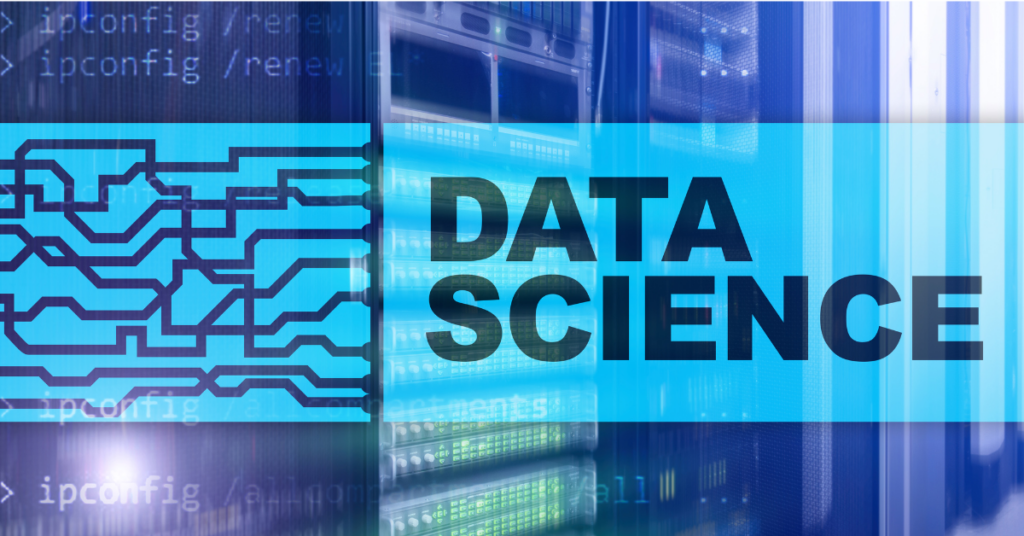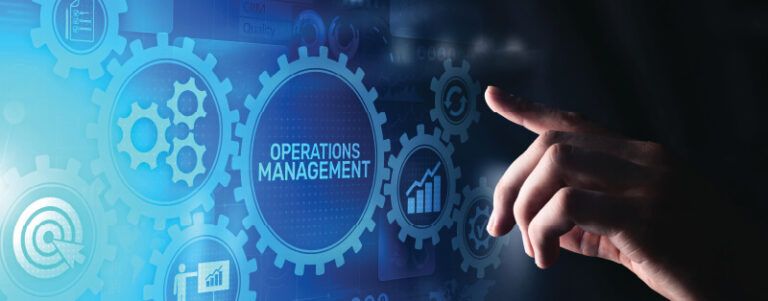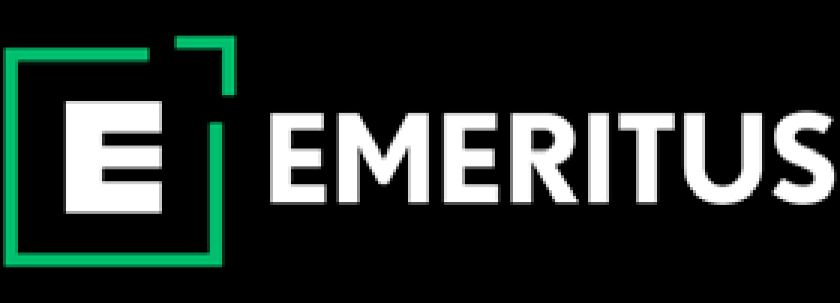Find Out What a Data Science Course Syllabus Must Include

Data science, a field that emerged in the 1960s, has evolved significantly over the decades. Initially rooted in statistics and computer science, it was born out of the necessity to interpret vast amounts of data generated by scientific research and business operations. Over time, the Internet, the Internet of Things (IoT) and the exponential growth in data volume, along with innovations in machine learning and AI, have transformed data science into a pivotal discipline. Today, data science is applied across diverse fields, from business analytics and government operations to STEM research, making it a versatile and crucial area of study. Consequently, a well-rounded data science course syllabus must strike a balance between the latest advancements in the field and its wide-ranging applications.
What is a Data Science Course?

A data science course is an educational program designed to equip learners with the necessary skills to collect, process, and analyze large datasets to derive meaningful insights. Generally, these courses typically cover a range of subjects, from the basics of data science to advanced machine learning techniques. Students learn to apply statistical analysis, use programming tools, and understand the principles of database management. Consequently, by mastering these areas, students can develop solutions that leverage data to solve real-world problems, whether in business, healthcare, or other industries.
What are the Top Data Science Course Subjects?
A data science syllabus should be comprehensive and multidisciplinary, reflecting the complexity and breadth of the field. Below are some of the core data science course subjects that are essential for any data science curriculum.
1. Introduction to Data Science
The introductory phase of a data science course sets the foundation for understanding the field. This section typically covers:
- History and evolution of data science
- Role of data in decision-making
- Overview of the data science discipline
Additionally, with the growing importance of AI, introductory modules now often include basic concepts in AI and machine learning.
2. Statistical Analysis and Inference
Statistics is the backbone of data science. Therefore, in this part of the syllabus, the focus generally remains on topics including:
- Foundational statistics
- Hypothesis testing
- Exploratory Data Analysis (EDA)
- One-sample t-test
- Paired sample t-test
- Analysis of Variance (ANOVA)
Moreover, it can also include complex topics like Principal Component Analysis (PCA), which is crucial for reducing dimensionality and interpreting high-dimensional data. Furthermore, tools like SPSS, SAS, and MATLAB are commonly introduced to facilitate statistical analysis.
ALSO READ: Data Analyst vs. Data Scientist: Differences You Need to Know
3. Programming and Software Tools
Proficiency in programming is vital for anyone aspiring to succeed in data science. This part of the data science course syllabus typically includes training in different programming languages. Primary among them are:
- Python
- SQL
- R
- VBA (Visual Basic for Applications)
- Julia
These languages are heavily used in various industries. However, to enable data scientists to address particular situations and requirements, data science course topics can also include other languages, such as:
- C/C++
- Scala
- MATLAB
- Java/JavaScript
4. Data Processing and Transformation
Before any meaningful analysis can take place, data must be cleaned and transformed. This section covers multiple topics such as:
- Data cleaning techniques
- Handling missing data
- Feature engineering
- Data wrangling
Additionally, it includes methods for data imputation and normalization techniques, which are essential for preparing data for analysis. Moreover, tools like Pandas, NumPy, and Dask are introduced to handle large datasets and optimize data processing tasks.
5. Machine Learning and Predictive Modeling
Machine learning is a core component of modern data science. In this subject, the focus is on supervised and unsupervised learning, including regression, classification, and clustering techniques. Tools, frameworks, libraries, etc, generally taught in data science syllabus include:
- TensorFlow
- Keras
- Scikit-learn
- PyTorch
These are crucial for enabling the implementation of various machine learning algorithms.
6. Database Management and Big Data Technologies
Handling large datasets is a key challenge in data science. Hence, this part of the syllabus introduces students to relational and non-relational databases, as well as big data technologies such as Hadoop and Spark. Understanding these systems is crucial for managing and processing large volumes of data efficiently.
7. Data Visualization and Reporting
The ability to communicate data insights effectively is a crucial skill for data scientists. Hence, this section focuses on using tools such as ggplot2 to create visual representations of data. Here, participants learn techniques for creating clear and informative charts, plots, and dashboards that can convey complex information to stakeholders.
8. Natural Language Processing (NLP) and Text Analytics
With the immense deluge of web content including marketing blogs, social media etc, data science often uses natural language processing tools for extracting meaningful insights from large datasets. So, this module generally covers common topics like:
- Text mining
- Sentiment analysis
- Social media analytics
- Deep semantic similarity models
ALSO READ: What is Data Warehouse Architecture: Here’s All You Need to Know
9. Integration of AI-Powered Data Science into Business Strategies
As AI becomes more integrated into business operations, understanding how to incorporate AI into business strategies is crucial. Hence, this module covers subjects like AI strategy, governance, and creating an AI-driven culture. In this module participants are taught to integrate AI into existing business systems while ensuring compliance and ethical considerations.
10. Capstone Projects and Real-World Applications
A key component of any data science course is the capstone project, where students apply their knowledge to real-world scenarios. For instance, these projects often involve collaboration with industry partners, providing students with valuable hands-on experience and a portfolio piece that demonstrates their skills.
What Should a Data Science Course Syllabus Include?
Data science is a rich discipline that covers various topics, and what you would specialize in depends on your requirements. However, some of the most common data science course subjects are as follows:
| Topic | Description |
| Data Visualization | Create visual representations of data to enhance interpretation and communication |
| Big Data | Handle large datasets using tools like Hadoop and Spark |
| Exploratory Data Analysis | Summarize and visualize data to identify patterns and insights |
| Data Lakehouse | Combine data lakes and warehouses for efficient data management |
| Linear Algebra | Essential part of machine learning |
| Statistics | Learn statistical concepts essential for data analysis |
| Machine Learning Algorithm | Understand the algorithms for different types of learning, such as supervised, unsupervised, reinforcement learning |
| Deep Learning | Use neural networks for tasks like image and speech recognition |
| NLP | Analyze and process natural language data |
| Artificial Intelligence | Apply AI to drive and scale data science operations |
| Programming Languages | Learn programming languages for a variety of tasks ranging from cleaning, organizing, and analyzing data to developing machine learning models |
ALSO READ: How to Become a Data Engineer? Everything You Need to Know
What to Know Before Starting a Data Science Programme?

Now that you are familiar with what the key data science course subjects are, let’s discuss the steps that you must take before you join a data science program.
1. Know Yourself
Before enrolling in a data science course, it’s crucial to assess your current skill level and career goals. So, what is it that you want to achieve? Are you a beginner looking to break into the field, a mid-level professional aiming to upskill, or a senior data scientist seeking a refresher? Understanding your starting point will help you select the most appropriate course.
2. Review the Syllabus of the Prospective Course
Now that you’ve identified your goals, it’s time to review the data science course syllabus carefully. Does it cover the topics you need, such as AI, machine learning, or big data technologies? Ensure the course aligns with your objectives and provides the depth of knowledge you seek.
3. Relevance of the Course to Career Goals
Apart from the data science course syllabus, it’s important to consider the course timeline and the opportunities it offers. Finally, consider how the course fits into your broader career strategy and whether it will help you achieve your long-term goals.
How to Find the Right Course for Yourself
A well-rounded data science course syllabus encompasses a wide range of subjects, from foundational topics like statistics and programming to advanced areas such as machine learning and big data technologies. Mastering these core subjects equips you with the essential skills to thrive in this rapidly evolving field.
So, depending on your career stage and goals, there are several courses available, brought to you by Emeritus, that can enhance your expertise.
| Programme | Institution | Target Audience |
| Professional Certificate Programme in Advanced Data Analytics for Managers | IIM Kozhikode | Mid to senior-level professionals seeking to excel in business analytics and data science |
| Professional Certificate Programme in Data Science and Artificial Intelligence for Managers | IIM Kozhikode | Those wanting to lead data science, ML, and AI projects with hands-on experience in industry tools and generative AI |
| Chief Digital and AI Officer Programme | ISB Executive Education | Seasoned professionals aiming to become visionary leaders in the digital and AI landscape |
Each of these programmes offers a unique pathway to mastering data science, catering to the particular requirements of data science professionals at different career stages. If this discipline intrigues you, explore these data science courses with Emeritus to advance your career and stay ahead in the job market.
Write to us at content@emeritus.org














